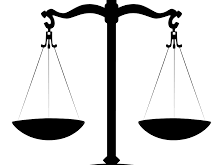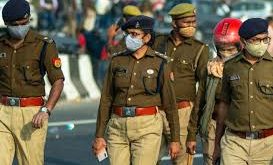While the police can arrest an individual without warrant and evidence, there has to be a specific reason for such an arrest
The thought of a police arrest is quite confusing and unnerving for the common people. There is not enough clarity about the circumstances under which the police can make an arrest. One of the common questions that comes to mind is can police arrest without warrant and evidence. To answer that, we need to take a look at the various rules of the Code of Criminal Procedure (CrPC).
Can police arrest without warrant and evidence?
Yes, the police can arrest without warrant and evidence. However, this can be done only in specific circumstances. In the normal process, the arrest warrant is issued by a court. The arrested individual is then produced before the court for further action. A valid arrest warrant is in writing, signed by the court’s presiding officer and has the court’s seal. The warrant also mentions the details about the accused and his offences. An arrest warrant can be bailable or non-bailable.
Criminal offences are classified into cognizable and non-cognizable categories. In most cases of non-cognizable offences, the police cannot make an arrest unless they get a warrant from a magistrate. But the action taken is different in the case of cognizable offences. This category covers serious crimes such as rape, murder, theft, robbery, waging war against the state, etc. In cases of cognizable offences, the police can arrest without warrant or evidence. However, a valid reason still needs to be provided.
Below are various cases when police can arrest without warrant and evidence:
- When the individual may be suspected of being involved in a cognizable offence or if there is a complaint filed in this regard with the police
- If the individual is found with tools used for house breaking
- If an individual is found in possession of stolen property
- If the individual is a proclaimed offender
- If the individual obstructs a police officer from discharging his duty
- If the individual escapes from a legal custody
- If the individual is found to be a deserter from the armed forces (Army, Navy and Air Force)
- Citizens of other countries can be arrested if their offences come under any extradition law or the Fugitive Offenders Act
- If convicts released from jail break any of the restrictions imposed upon them
- If the individual is found to be planning to commit a cognizable offence and is a habitual offender
- In case an individual commits a non-cognizable offence in front of the police, but refuses to provide their details or gives false information
What to do if police come to arrest you?
It is recommended that you cooperate with the police when they come to arrest you. You should do this even when you think you are innocent. If you resist an arrest, the police are allowed by law to use force, as necessary. This right is provided to the police under Sec 46 of the CrPC. So, resisting arrest can have worse outcomes. It will be better to consult with a lawyer, who can then approach a court for relief.
 Newspatrolling.com News cum Content Syndication Portal Online
Newspatrolling.com News cum Content Syndication Portal Online





